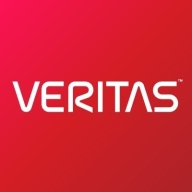


Red Hat Ceph Storage and Veritas Access are competitive products in the software-defined storage market. Red Hat Ceph Storage seems to have the upper hand in scalability and flexibility, appealing to businesses requiring vast data capacity, while Veritas Access is preferred for its robust feature set, making it suitable for enterprises seeking comprehensive data management solutions.
Features: Red Hat Ceph Storage offers scalability, open-source flexibility, and suitability for variable data needs. Veritas Access provides extensive integration capabilities, data protection features, and unified data services.
Ease of Deployment and Customer Service: Red Hat Ceph Storage provides streamlined deployment optimized for cloud environments with extensive documentation. Veritas Access offers a structured deployment approach with strong support services.
Pricing and ROI: Red Hat Ceph Storage involves lower upfront costs, making it appealing for scalability without high initial investment, with its ROI depending on effective scaling over time. Veritas Access has higher setup expenses but often ensures swift ROI through its features and service integration.



FlashBlade is the industry’s most advanced scale-out storage for unstructured data, powered by a modern, massively parallel architecture to consolidate complex data silos (like backup appliances and data lakes) and accelerate tomorrow’s discoveries and insights.
Veritas Access is a software-defined, scale-out network-attached storage (NAS) solution for unstructured data that uses intelligent policies to optimize data placement on-premise or on public clouds. Access provides resiliency, multi-protocol access and automated data movement to realize application performance, cost-effectiveness and scalability gains.
We monitor all Software Defined Storage (SDS) reviews to prevent fraudulent reviews and keep review quality high. We do not post reviews by company employees or direct competitors. We validate each review for authenticity via cross-reference with LinkedIn, and personal follow-up with the reviewer when necessary.